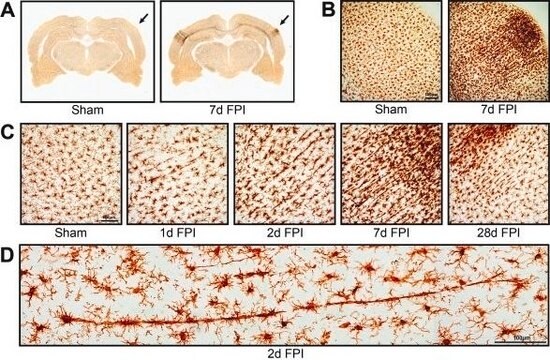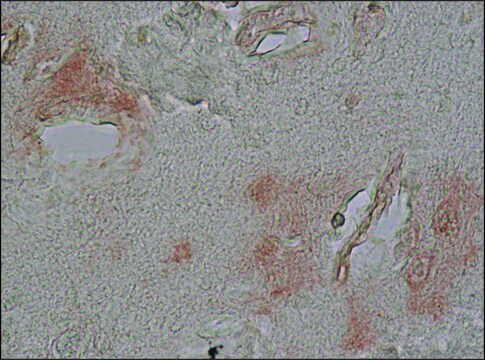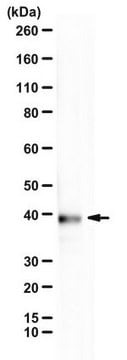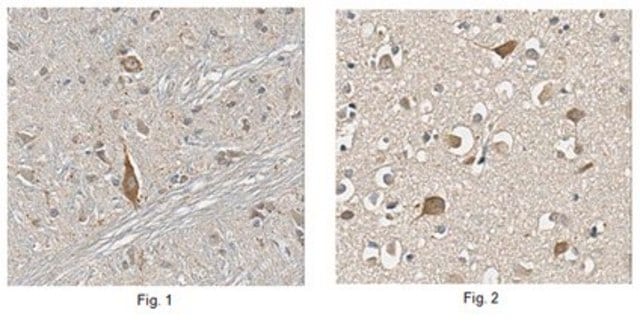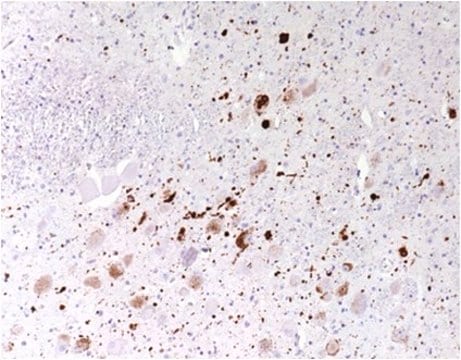ABN905
Anti-alpha-Synuclein
from rabbit, purified by affinity chromatography
Sinónimos:
Non-A beta component of AD amyloid, Non-A4 component of amyloid precursor, NACP
About This Item
WB
western blot: suitable
Productos recomendados
biological source
rabbit
antibody form
affinity isolated antibody
antibody product type
primary antibodies
clone
polyclonal
purified by
affinity chromatography
species reactivity
human, mouse, rat
packaging
antibody small pack of 25 μg
technique(s)
immunohistochemistry: suitable (paraffin)
western blot: suitable
NCBI accession no.
UniProt accession no.
target post-translational modification
unmodified
Gene Information
human ... SNCA(6622)
General description
Specificity
Immunogen
Application
Immunohistochemistry (Paraffin) Analysis: A 1:2,000-3,000 dilution from a representative lot detected alpha-Synuclein in human cerebral cortex and rat cerebellum tissue sections.
Quality
Western Blotting Analysis: A 1:500 dilution of this antibody detected alpha-Synuclein in mouse brain tissue lysate.
Target description
Other Notes
¿No encuentra el producto adecuado?
Pruebe nuestro Herramienta de selección de productos.
Certificados de análisis (COA)
Busque Certificados de análisis (COA) introduciendo el número de lote del producto. Los números de lote se encuentran en la etiqueta del producto después de las palabras «Lot» o «Batch»
¿Ya tiene este producto?
Encuentre la documentación para los productos que ha comprado recientemente en la Biblioteca de documentos.
Nuestro equipo de científicos tiene experiencia en todas las áreas de investigación: Ciencias de la vida, Ciencia de los materiales, Síntesis química, Cromatografía, Analítica y muchas otras.
Póngase en contacto con el Servicio técnico
